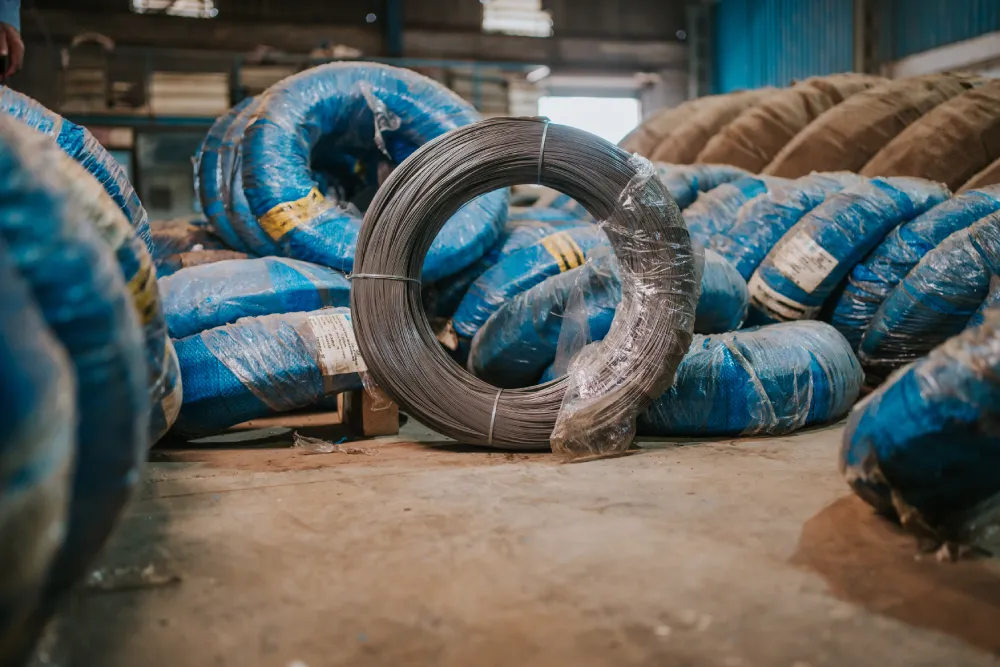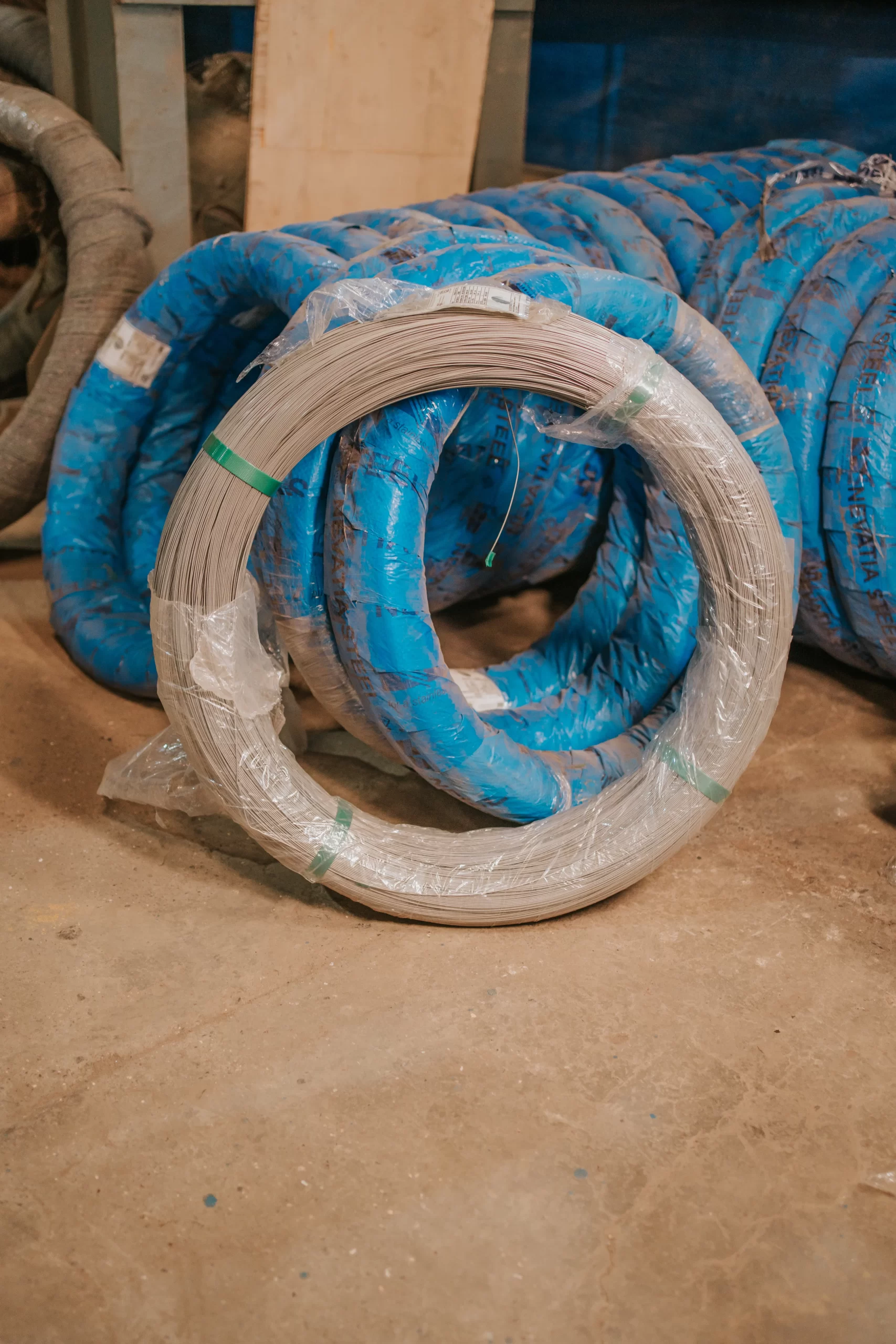Stainless Steel Wire
Description
– Bright surface / sterate or soap coated surface
Grades
AISI 302, 304, 316, 17 7PH, etc.
| Diameter (mm) | Grade (AISI) | Tolerance (mm) | Tensile | Packing | Surface Finish |
| 0.08 – 0.30 | 302, 304, 316, 17-7 PH | +/-0.006 | ASTM A313 / ISO 6931-1 / JIS G-4314 / IS 4454-4 | DIN 100 / 160 / 200 / 250 / US 250 | Bright, light oil |
| 0.31 – 1.20 | +/-0.008 | DIn 200 / 250 / US 250 / Coils | |||
| 0.40 – 0.60 | +/-0.010 | DIN 500 / 560 / 760 Steel Reel / Plastic Spool / Coils | Stearate Coated | ||
| 0.61 – 1.60 | +/-0.015 | ||||
| 1.61 – 3.00 | +/-0.020 | ||||
| 3.01 & above | +/-0.025 | Coils | Stearate Coated |
Applications
Stainless steel wire finds a wide range of applications across various industries due to its unique properties, including corrosion resistance, strength, durability, and versatility
- Mesh and Netting: Stainless steel wire mesh and netting are utilized in applications such as filtration, separation, screening, and reinforcement in industries including agriculture, food processing, petrochemical, and construction. It provides excellent corrosion resistance, durability, and strength, making it suitable for use in demanding environments.
- Springs and Fasteners: Stainless steel wire is used in the production of springs, fasteners, and wire forms for various applications in automotive, aerospace, electronics, and industrial machinery. Its high tensile strength, elasticity, and corrosion resistance make it ideal for manufacturing precision components that require reliability and longevity.
- Medical Devices: Stainless steel wire is employed in the manufacturing of medical devices and equipment such as surgical instruments, catheters, orthodontic appliances, and medical implants. It offers biocompatibility, sterilizability, and corrosion resistance, making it suitable for use in critical medical applications where hygiene and safety are paramount.
- Electrical and Electronics: Stainless steel wire is used in electrical and electronic applications for wiring, connectors, contacts, and shielding due to its electrical conductivity, corrosion resistance, and durability. It provides reliable electrical connections and protection against electromagnetic interference (EMI) in devices and equipment such as appliances, consumer electronics, and industrial machinery.





 ISO 9001:2015Brochure
ISO 9001:2015Brochure